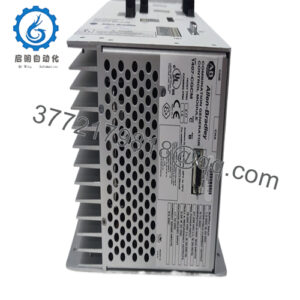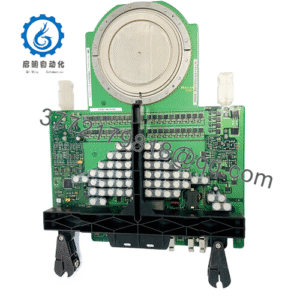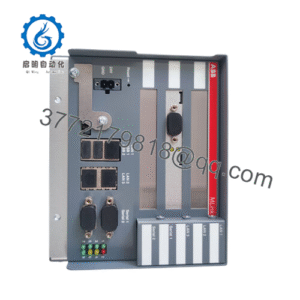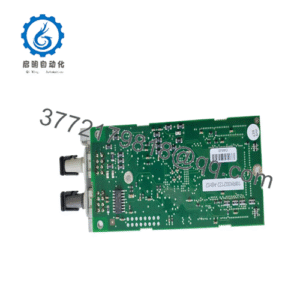Description
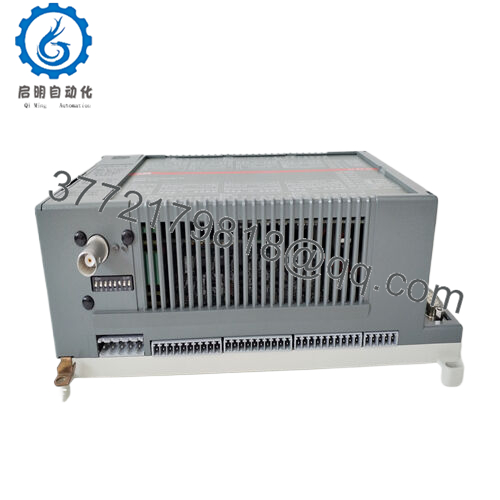
07KT94H
The Nitty-Gritty (Tech Specs)
Here’s what matters when you’re wiring one of these into your DCS rack:
| Parameter | Value |
|---|---|
| Model | ABB 07KT94H |
| Series | Advant Controller 400 |
| Type | Communication Interface Module |
| Power Supply | 24 VDC nominal |
| Communication | ModuleBus / COMLI |
| Typical Use | Link between Advant Controller and I/O modules |
| Mounting | DIN rail / system rack |
| Operating Temp. | 0°C to 55°C |
| Dimensions | Standard single-slot module |
| Brand | ABB |
Don’t expect flashy LEDs or diagnostics like modern units — this one’s old-school. It tells you what you need to know and leaves the rest to your process logic.
Key Specifications
| Specification | Details |
|---|---|
| Manufacturer | ABB |
| Model | 07KT94H |
| Module Type | Controller / CPU Module |
| System Compatibility | ABB Advant DCS / Advant OCS |
| Power Supply | 24 V DC nominal (typical range 18–30 V) |
| Power Consumption | Approx. 15–20 W under normal load |
| Operating Temperature | -20 °C to +70 °C |
| Storage Temperature | -40 °C to +85 °C |
| Humidity | 5–95% non-condensing |
| I/O Interface | Supports digital, analog, and specialty I/O modules via backplane |
| Communications | ARCNET, RS‑232, or proprietary ABB fieldbus |
| Diagnostics | Onboard LED indicators for health, power, and fault status |
| Mounting | Rack-mounted in standard Advant backplane |
| Certifications | CE, UL, CSA (depending on revision) |
My first run-in with the ABB 07KT94H was sometime around 2012, in a pulp and paper plant up in Finland. The site ran a mix of old Bailey and newer ABB gear, and this little interface module was the bridge that made it all talk together. The local techs swore by it — “we’ve got spares,” they’d say, “but these rarely die.” And they were right. The 07KT94H just kept going, even when everything else around it seemed to be on its last legs.
Product Introduction & Positioning
The 07KT94H stands as the foundational basic unit in ABB’s Advant Controller 31 lineup, a programmable logic controller module that serves as the computational hub for decentralized automation in the AC31 ecosystem. Envision it as the conductor in a chorus of controls, housing a 16-bit processor with 256 KB RAM to crunch user programs, manage I/O traffic, and interface via serial or fieldbus, all powered by a compact 24V DC footprint that slots into DIN-rail assemblies for field-level deployment.
Architecturally, it anchors the AC31’s modular chain, linking as bus master, slave, or standalone to expansion cards like KT97 analog handlers, forming scalable nodes that tie into ABB’s 800xA or Symphony Plus for supervisory oversight. The H variant tweaks for heightened environmental tolerance, suiting it for ABB’s legacy Advant OCS migrations where Ethernet bridges supplant older highways. Panel fabricators favor its drag-and-drop programming in Control Builder, supporting IEC 61131-3 languages from ladder to structured text, without the bloat of rack-mounted behemoths.
When searches spike for “ABB 07KT94 basic units in decentralized PLCs,” the 07KT94H emerges as the pragmatic powerhouse for mid-scale tasks, from 32 digital points to fused analogs, with SmartMedia slots for offline backups that dodge live edits. It bridges eras, where its punch lies in 7-mode counters up to 100 kHz for encoder pulses. This isn’t entry-level logic; it’s the adaptive axis that decentralizes decisions, easing evolutions from centralized relics to nimble, node-based narratives in systems that span sites.
Tales from the Field
Let me tell you about a night in a wastewater treatment plant outside Jakarta. We had a rack with an ABB 07KT94H that started dropping communication intermittently. Everyone suspected the CPU, but the scope told a different story — slight oxidation on the backplane connector. A bit of contact cleaner and reseating later, the line came back rock solid. That’s one of those lessons you only learn once: never underestimate what a dusty control cabinet in a tropical climate can do to your comms.
Strengths & Real-World Advantages
- Rugged Longevity: I’ve seen 07KT94H units run 20+ years without a hiccup.
- Simple Integration: Slot it, address it, and you’re in business — ABB didn’t overcomplicate it.
- Stable Communication: Even when the rest of the system hiccups, this module holds the bus together.
- Backward Compatibility: It still plays nice with legacy Advant I/O and controllers like the ABB 07KT98, which is rare these days.
When you’re maintaining an older plant that can’t afford extended downtime, reliability trumps fancy new tech — and that’s where this one shines.
The “Watch-Outs”
I’ll be honest — the documentation for the 07KT94H isn’t bedtime reading. ABB’s manuals from that era assume you already know your way around an Advant rack. So if you’re swapping one in, double-check your addressing and firmware compatibility. Also, note that some early revisions didn’t like certain grounding schemes — I’ve had noise spikes that disappeared the moment we tied the chassis ground correctly.
Installation & Commissioning Tips
- Always check your backplane slot assignment; 07KT94H prefers a clean data bus with proper termination.
- Use high-quality 24VDC power — ripple or unstable supply can cause random bus faults.
- Label your ModuleBus cables. Trust me, once you’ve got ten of these in a cabinet, they all look the same.
- If you’re integrating with third-party devices, verify COMLI settings — baud, parity, and stop bits must match exactly.
Where It Shines
The ABB 07KT94H has found its way into power plants, paper mills, water treatment facilities, and offshore platforms — anywhere legacy ABB Advant systems still run the show. It’s not flashy, but it’s the glue that holds those networks together. I’ve even seen engineers build hybrid control setups — new AC800M controllers talking through old 07KT94H nodes — and it just works.
The Bottom Line
If you’re running an older ABB Advant Controller 400 system, the 07KT94H isn’t just a spare part — it’s a lifeline. Keep one or two on the shelf. When your comms go down at 3 a.m. and production’s on hold, you’ll thank yourself for it.
It’s not the newest, it’s not the smartest — but it’s one of those modules that quietly earns your respect over decades of reliable service.

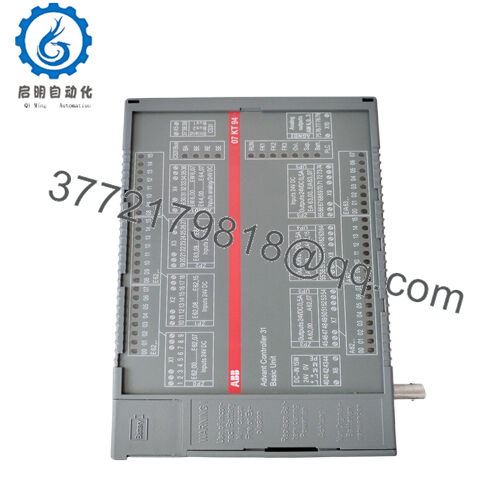
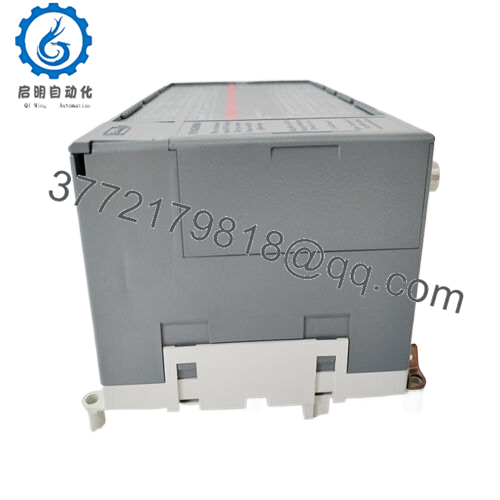
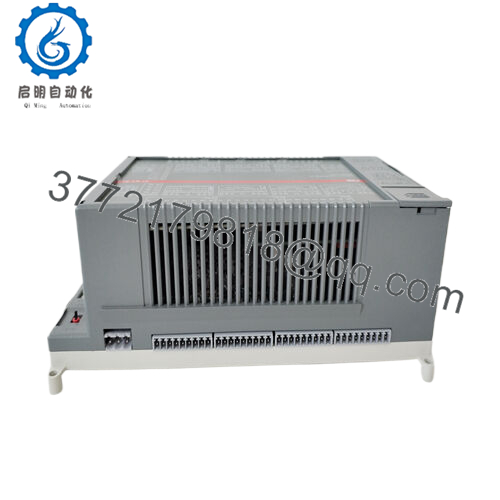
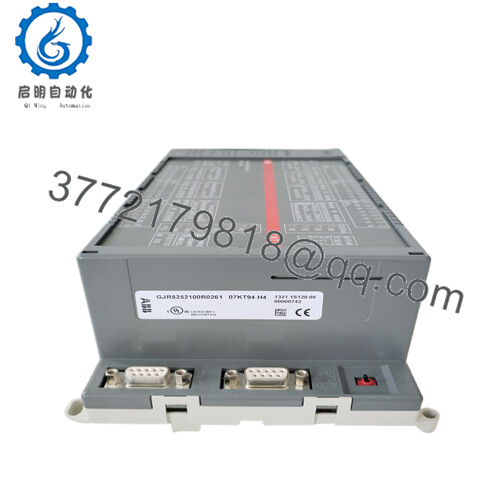
 WhatsApp: +86 16626708626
WhatsApp: +86 16626708626 Email:
Email:  Phone: +86 16626708626
Phone: +86 16626708626